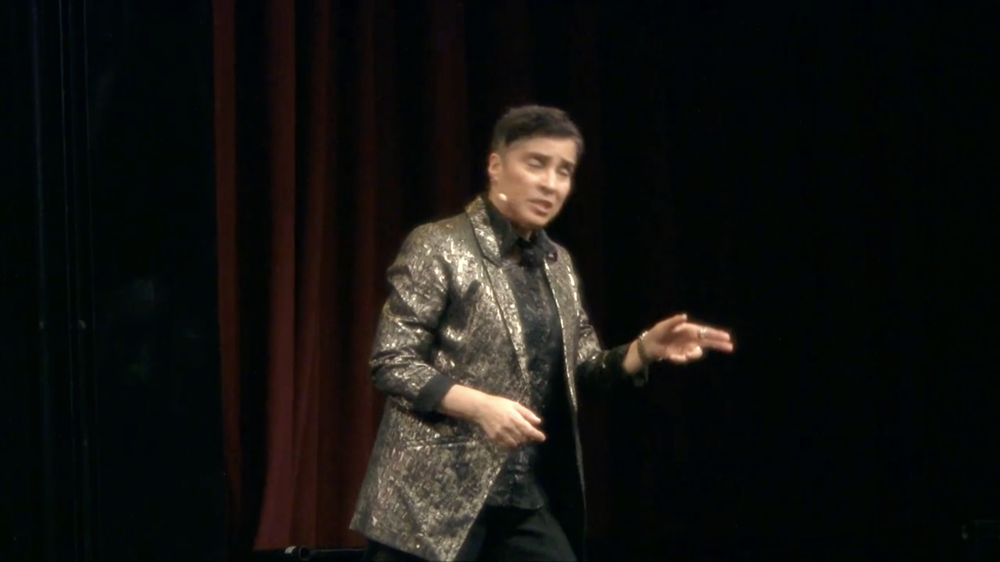
Photo by Anne Whitman.
Marga Gomez was raised by a flamboyant pack of Latiné entertainers in Washington Heights, New York. Gomez’s big break was at age seven, as a walk-on in her parents’ comedy sketch show. She was immediately possessed by the communal joy emanating from the front row to the balcony. The milieu of her parents, their struggle, and their value as artists to an emerging immigrant community would inspire many of her autobiographical solo plays.
Her decision to come out to her parents at nineteen did not go well. She bolted to San Francisco, where she found her voice as an openly lesbian Latina, performing in a city brimming with promise, resistance, intersectionality, activism, and tragically, the onset of AIDS during the Regan presidency. Bouncing from stand-up to political theater, she landed a season as an actor with the Tony Award–winning San Francisco Mime Troupe, followed by a year as a founding member of the groundbreaking Latiné ensemble Culture Clash.
In the nineties, she moved to autobiographical playwriting and was selected by George C. Wolfe for the 1991 Festival of New Voices at the Public Theater. Her relationship with the Public Theater continued for several productions, most recently in 2017 at its Under the Radar Festival. Gomez is the writer/performer of thirteen solo plays that have been presented nationally and internationally. Excerpts from her plays have been published in several anthologies, including Contemporary Plays by American Women of Color (Routledge) and Out of Character (Bantam).
Donor -This award was generously supported by the Doris Duke Charitable Foundation.
This artist page was last updated on: 07.16.2024

Latin Standards, by Marga Gomez, 2018. Performed in San Francisco at Brava Theater.
Video courtesy of the artist.
Script by Marga Gomez, 2020.